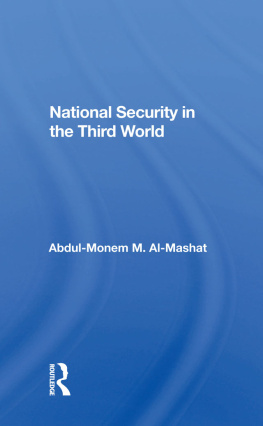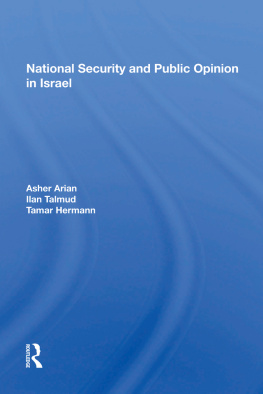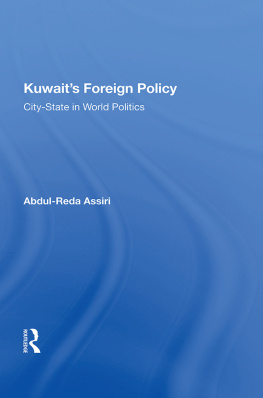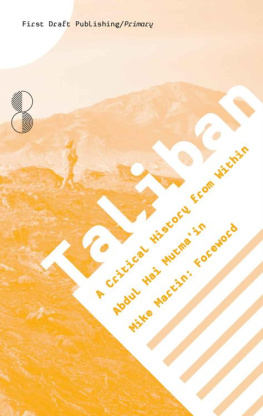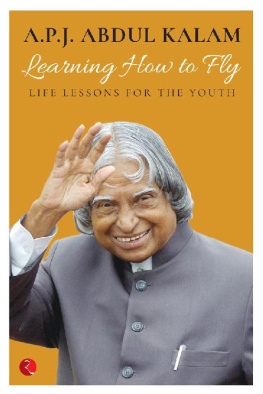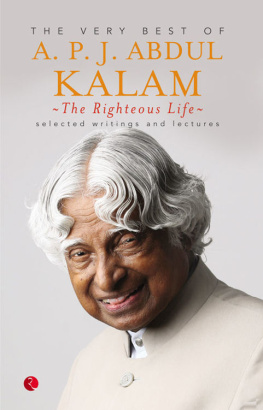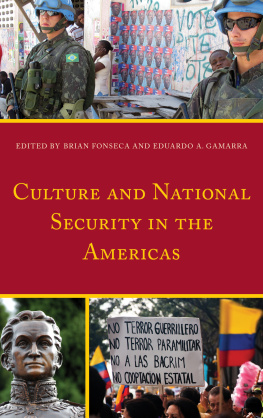National Security in the Third World
Westview Replica Editions
The concept of Westview Replica Editions is a response to the continuing crisis in academic and informational publishing. Library budgets for books have been severely curtailed. Ever larger portions of general library budgets are being diverted from the purchase of books and used for data banks, computers, micromedia, and other methods of information retrieval. Interlibrary loan structures further reduce the edition sizes required to satisfy the needs of the scholarly community. Economic pressures on the university presses and the few private scholarly publishing companies have severely limited the capacity of the industry to properly serve the academic and research communities. As a result, many manuscripts dealing with important subjects, often representing the highest level of scholarship, are no longer economically viable publishing projects--or, if accepted for publication, are typically subject to lead times ranging from one to three years.
Westview Replica Editions are our practical solution to the problem. We accept a manuscript in camera-ready form, typed according to our specifications, and move it immediately into the production process. As always, the selection criteria include the importance of the subject, the work's contribution to scholarship, and its insight, originality of thought, and excellence of exposition. The responsibility for editing and proofreading lies with the author or sponsoring institution. We prepare chapter headings and display pages, file for copyright, and obtain Library of Congress Cataloging in Publication Data. A detailed manual contains simple instructions for preparing the final typescript, and our editorial staff is always available to answer questions.
The end result is a book printed on acid-free paper and bound in sturdy library-quality soft covers. We manufacture these books ourselves using equipment that does not require a lengthy make-ready process and that allows us to publish first editions of 300 to 600 copies and to reprint even smaller quantities as needed. Thus, we can produce Replica Editions quickly and can keep even very specialized books in print as long as there is a demand for them.
About the Book and Author
For nations of the Third World, national security poses serious dilemmas. Unlike Western nations, less developed countries must balance the complex and often contradictory requirements of socioeconomic and political development with problems of internal stability and the requirements of national defense. For these countries, a concept of national security that focuses primarily on the international threat system and its overt manifestations of wars and violence, ignoring domestic well-being, is inadequate on theoretical and pragmatic grounds.
This book addresses the security problems of Third World states, arguing for new ways to define and measure national security so that the concept may be appropriately applied to the needs of developing countries. In addition, the author argues that the "tranquility" of a state, a concept traditionally linked with national security, cannot necessarily be associated with quality of life as measured by conventional means. Dr. AI-Mashat constructs a tranquility index for ninety-five developing nations and tests its relationship with the physical quality-of-life index to demonstrate this point. Attempts to improve quality of life, he suggests, may in many countries lead to a reduction in security unless simultaneous attempts are made to democratize the regime.
Abdul-Monem M. Al-Mashat is assistant professor at the Faculty of Economics and Political Science, Cairo University.
National Security in the Third World
Abdul-Monem M. Al-Mashat
First published 1985 by Westview Press, Inc.
Published 2018 by Routledge
52 Vanderbilt Avenue, New York, NY 10017
2 Park Square, Milton Park, Abingdon, Oxon OX14 4RN
Routledge is an imprint of the Taylor & Francis Group, an informa business
Copyright 1985 Taylor & Francis
All rights reserved. No part of this book may be reprinted or reproduced or utilised in any form or by any electronic, mechanical, or other means, now known or hereafter invented, including photocopying and recording, or in any information storage or retrieval system, without permission in writing from the publishers.
Notice:
Product or corporate names may be trademarks or registered trademarks, and are used only for identification and explanation without intent to infringe.
Library of Congress Cataloging in Publication Data
Al-Mashat, Abdul-Monem M. (Abdul-Monem Mohamed)
National security in the Third World.
(A Westview replica edition)
Bibliography: p.
1. Developing countries--National security. I. Title.
UA10.5.A4 1985 355'.03301724 83-2247
ISBN 13: 978-0-367-01722-4 (hbk)
For individuals, groups, and nations, there are several sources of insecurity and fear. There are wars and threats of wars; poverty and its economic and physiological consequences; and repression, authoritarian controls, and the denial of identity and participation.
Professor Al-Mashat's book is about the management and eradication of these human insecurities. In his new book on national security, more than territorial defense it is about the physical, social, and psychological quality of life of a society and its members, both in the domestic setting and within the larger regional and global systems.
Professor Al-Mashat implies that legitimacy of regimes and national security are two sides of the same coin. Legitimacy is determined by how effectively the policies of elites and the structures of the political system satisfy the economic, political, and identity needs of the members of the society. The greater the success of ruling elites in satisfying the basic human needs of their people, the greater is the legitimacy and therefore the stability of the regime.
Furthermore, regional and international cooperation and national security are interdependent. The greater the level of cooperative relations, the greater the opportunity for stability and security. The greater the regional stability, the greater are the opportunities for domestic consensus and security.
Professor Al-Mashat's argument is that domestic security affects regional and international security and vice versa. However, it is the domestic environment that is important and critical in national security considerations. Carrying this argument forward to the Third World and perhaps to all other states, Professor Al-Mashat finds the following:
- the improvement of the physical quality of life alone, not in the absence of withstanding the psychological quality of life, is negatively correlated to the level of security;
- national security is positively correlated with the increase in the distributive capability and democratization of a given system? and
- the tranquility and well-being of a society are preconditions for security.
This work should be seen as an important addition to the literature on national security, particularly since it demonstrates that in a newly emerging nation there is more to the meaning of security than what has been traditionally included. This book also demonstrates effectively that national security questions can be studied and analyzed empirically. Finally, it makes a timely contribution for the thinking of those in Third World countries who are now becoming interested in the theoretical and empirical aspects of the term "national security."


